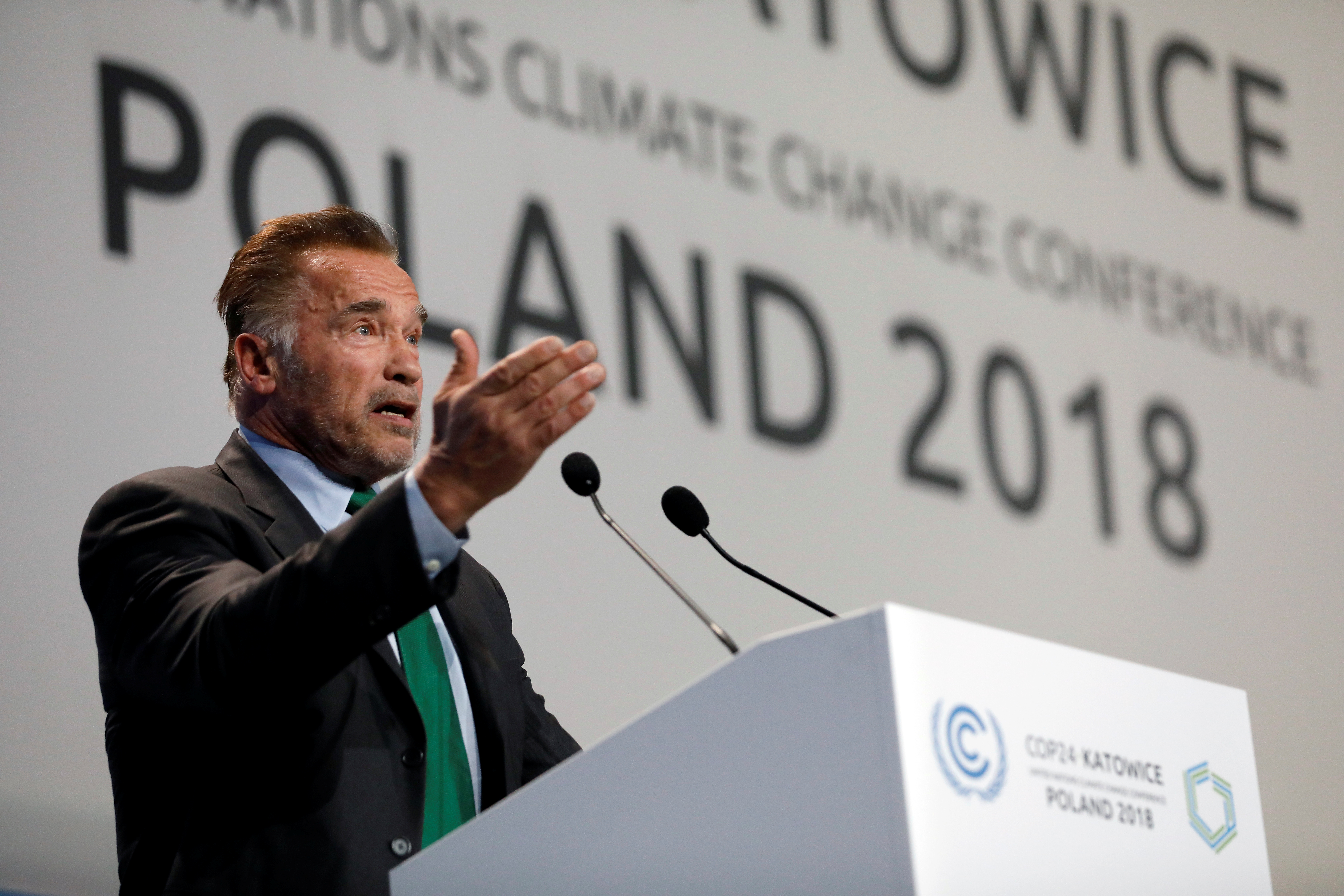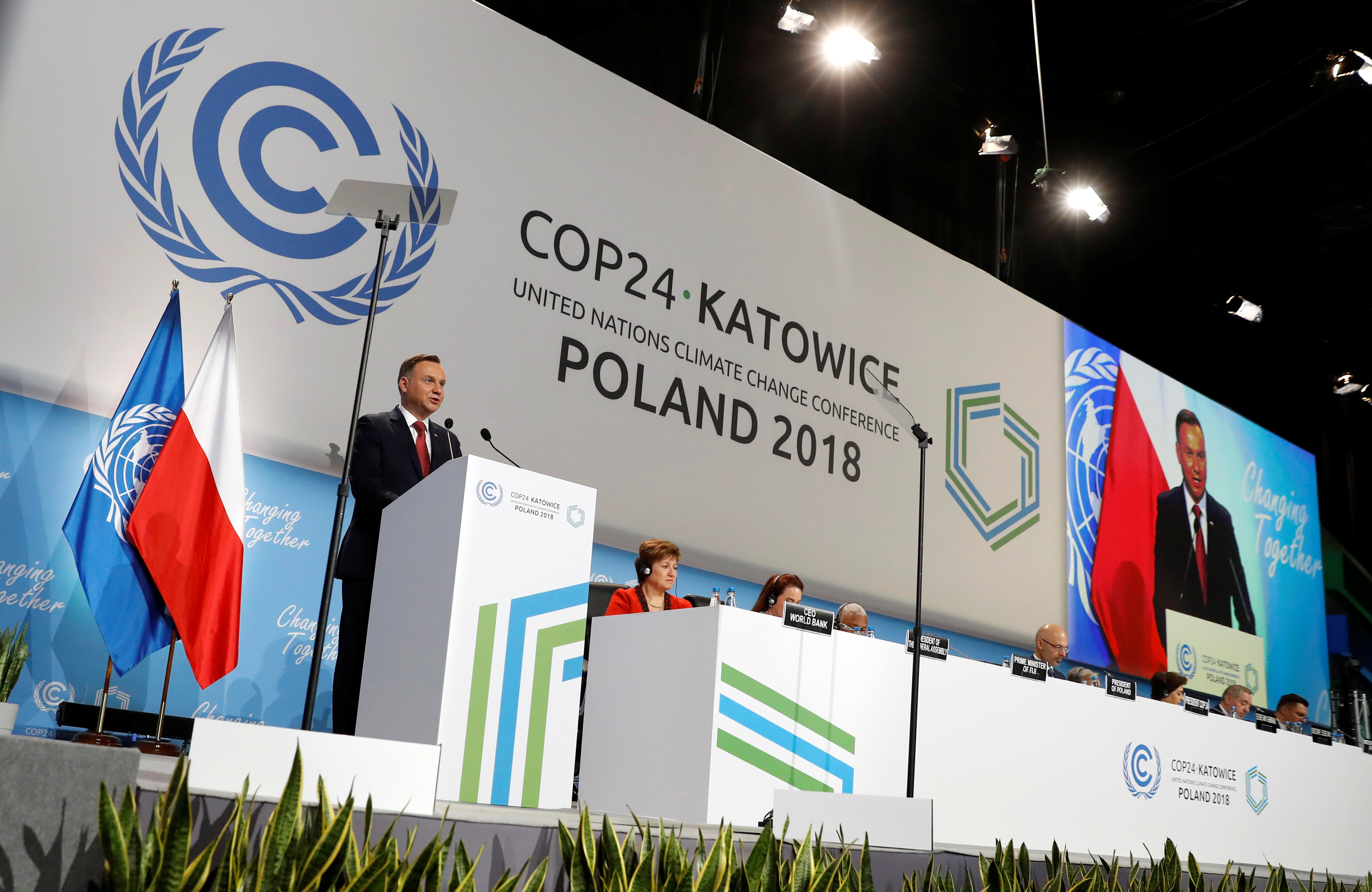- CO2 emissions blamed for global warming are expected to hit record highs this year.
- At least $2 billion has gone toward United Nations climate summits meant to stop global warming.
- “$2 billion was spent on these meetings, and for what?” one energy expert asks.
Global carbon dioxide emissions will likely hit record highs this year, according to a new report released Wednesday as United Nations diplomats meet in Poland to hash out details of the Paris climate accord.
Global emissions will rise roughly 3 percent to 37.1 gigatons in 2018, according to the Global Carbon Project (GCP). The rise in emissions was largely fueled by an uptick in coal-fired power generation in China and India.
“Emissions in China, India, and the US are expected to increase in 2018, while emissions in the [European Union] are expected to decline, and all other countries combined will most likely increase,” reads the report by GCP, which tracks emissions.
“The peak in global emissions is not yet in sight,” reads GCP’s report. (RELATED: France May Be Ahead Of The Curve When It Comes To Global Warming Policy Backlash)
Record-setting came despite the Paris climate accord being in force for two years and an estimated $2 billion worth of U.N. climate summits since 1995. U.N. climate summits are meant to bring world leaders together to tackle global warming.

Actor Arnold Schwarzenegger speaks during the COP24 U.N. Climate Change Conference 2018 in Katowice, Poland, Dec. 3, 2018. REUTERS/Kacper Pempel.
But that clearly hasn’t happened, leading some experts to question the useful of lavish annual U.N. climate conferences — the current summit in Katowice, Poland, likely costs more than $130 million.
“$2 billion was spent on these meetings, and for what?” environmental economist Richard Tol tweeted Wednesday.
Tol has tracked the cost of U.N. climate summits since 1995 when the first Conference of the Parties, or COP, was held in Berlin, Germany. Ever since then, the costs of U.N. climate summits have skyrocketed along with global emissions.
The costs of UNFCCC meetings and global CO2 emissions pic.twitter.com/6i5idrnFsZ
— Richard Tol (@RichardTol) December 5, 2018
In that time, the U.N. has convinced most countries to sign onto two global climate agreements — the Kyoto Protocol and the Paris accord. The latter replaced the Kyoto Protocol and went into effect in 2016.
U.S. President Donald Trump pledged to withdraw the U.S. from the Paris accord in 2020, undoing a major part of former U.S. President Barack Obama’s legacy on environmental issues.
The nearly 200 countries that signed onto the Paris accord, including China and the U.S., agreed to cut carbon dioxide emissions enough to keep future global warming under 2 degrees Celsius by 2100.
There was much fanfare around the Paris accord, which countries initially signed onto at the U.N.’s 2015 summit in Paris. In particular, the Obama administration and environmentalists touted China’s acceptance of the Paris accord and pledge to “peak” emissions in 2030.
However, coal still makes up the bulk of China’s electric sector and will continue to do so for some times, according to experts.

Polish President Andrzej Duda addresses during the opening of COP24 U.N. Climate Change Conference 2018 in Katowice, Poland, Dec. 3, 2018. REUTERS/Kacper Pempel.
“There was hope that China was rapidly moving away from coal power generation, but the last two years has shown it will not be so easy for China to say farewell to coal quickly,” Jan Ivar Korsbakken, a senior researcher at the Center for International Climate Research, told Axios.
“Coal is likely to dominate the Chinese energy system in the next decade, even if the skyrocketing growth seen in the mid-2000s is unlikely to return,” Korsbakken said.
The U.N.’s latest “emissions gap” report found “the G20 countries are collectively not on track to meet their unconditional [nationally determined contributions] for 2030,” meaning the world’s largest economies aren’t cutting emissions fast enough to meet their Paris accord pledges.
“If the emissions gap is not closed by 2030, it is very plausible that the goal of a well-below 2°C temperature increase is also out of reach,” the U.N. reported in November. “Coal is likely to dominate the Chinese energy system in the next decade, even if the skyrocketing growth seen in the mid-2000s is unlikely to return.”
Follow Michael on Facebook and Twitter
All content created by the Daily Caller News Foundation, an independent and nonpartisan newswire service, is available without charge to any legitimate news publisher that can provide a large audience. All republished articles must include our logo, our reporter’s byline and their DCNF affiliation. For any questions about our guidelines or partnering with us, please contact licensing@dailycallernewsfoundation.org.












